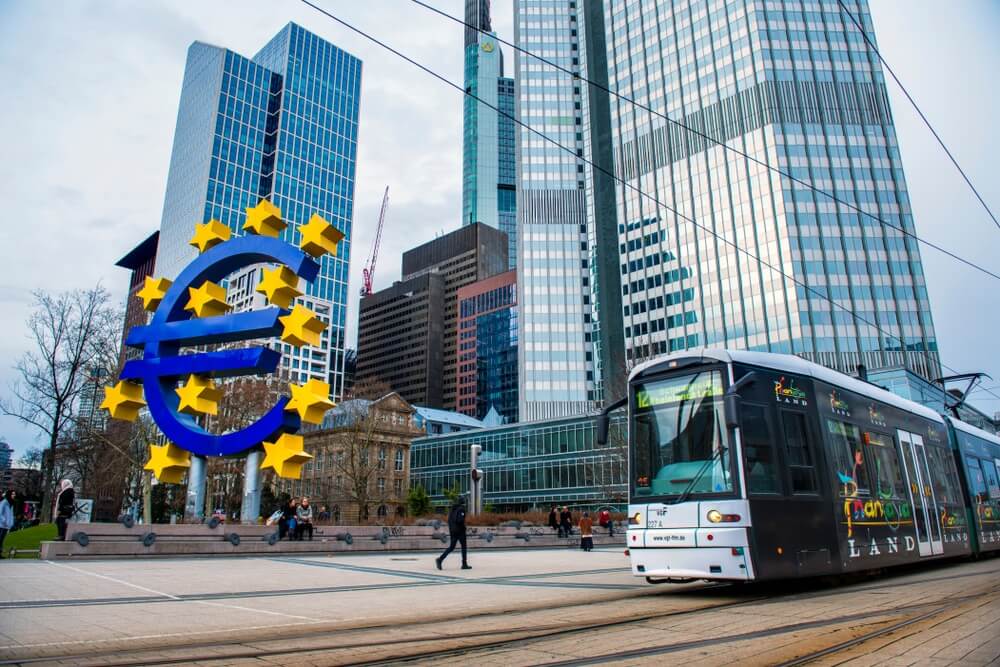
ECB May Tweak its Policy Following Shock Inflation Data
According to the market watchers, the European Central Bank (ECB) could tweak its policies this week. It may also follow the Federal Reserve to revise its inflation targets, long term.
The Governing Council at ECB will convene on Wednesday and Thursday. They will discuss its monetary policy stance and its assessment of the Eurozone economy.
Since the previous meeting, economic data has reflected a slowing recovery, appreciated euro, and slumped core inflation to a new record low in August.
The majority of analysts don’t expect much policy action and think the ECB will wait until December. However, there is a remote chance of tweaks to its guidance this week, supported by new staff projections.
According to Florian Heise of Berenberg, the ECB may stress more than before that the 1.35 trillion euro envelope of the Economic Pandemic Emergency Purchase Program (PEPP) is a target and not the ceiling.
The single currency is considerably appreciated since its low in March. That made Eurozone goods more expensive for the rest of the world and dampened price pressure from imports.
While most of the Governing Council sees no need for action, there might be some ‘verbal intervention’ from ECB President during the press conference.
If it happens, then it signals ECB’s willingness to ease the policy further when necessary.
To make it more complicated for the ECB, the Fed Reserve’s recent policy shift toward an average inflation target means lower interest rates for longer in the US. Thus, resulting in more pressure on the dollar. The policy shift makes it more complicated for the ECB.
What is next for the ECB?
The ECB has a high level of thinking about future policy and current situations. ECB’s chief economist, Philip Lane, hinted at a two-stage response at his Jackson Hole speech in August. He suggested the bank’s crisis toolkit may not be enough to address the persistently low inflation.
According to Philip, the first step is to counteract the negative shock to the expected inflation path the pandemic has caused. Through an intense temporary phase of additional monetary accommodation, the PEPP and other monetary policy instruments are designed to accomplish the first stage task.
Once they sufficiently offset the negative shock, the second step is to ensure they appropriately calibrate the post-pandemic monetary policy stance. This step ensures a timely convergence to the medium-term inflation aim.
It means, if the ECB does not see a surprise uptick in inflation within the next couple of months, then it will be set for more easing in December.
Philip Lane added that the ECB’s governing council stands ready to adjust all its instruments as appropriate.
ECB Vice President Vitor Constancio echoed the same on Wednesday.
Constancio also said that ECB would act on Thursday at the culmination of its two-day meeting. However, he said the ECB could even follow the Federal Reserve to revise its inflation target.
He added that following such a crisis; there may be price spikes that are not necessarily inflation. However, they must see monetary policy as allowing, temporarily, headline inflation going above the target.




